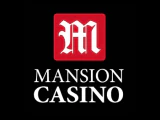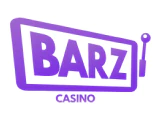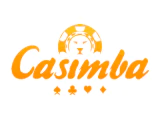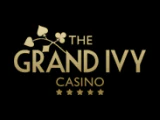During the 1700s and early 1800s gambling was a popular past time in both France and Germany. In fact, the Roulette wheel was invented during the 1700s and found instant audiences among gamblers of the day.
France and Germany’s Gambling Bans
Louis Blanc, the inventor of the modern European roulette wheel, was plying his gambling trade in Germany during the mid-1800s once France had effectively banned gambling. Not long behind France, though, Germany’s government thought it prudent to ban the practice, also.
Monaco, under the rule of Prince Charles III, was giving gambling a go in efforts to boost a lacklustre local economy. He invited Blanc to come to Monte Carlo. When Blanc accepted, it became a union of wits that would eventually open the region to the world.
Monte Carlo’s First Casino
In 1863, Prince Charles granted permission to Blanc to construct the first casino in Monte Carlo, the Casino de Monte Carlo. The highly stylized Belle Epoque architecture was an advertising strategy employed to appeal to the most gracious, the most elegant and sophisticated among European aristocracy. The wealthy were the same society who had already had gambling banned in their own countries.
Blanc believed that the unusually mild climate and wealth of sunshine characteristic to Monaco, along with stunning beaches and rocky cliffs, would be a welcome vacation respite for bored Europeans.
A Railroad
The only other critical piece to the success of Monte Carlo was finding a convenient way to get wealthy visitors into and out of the cramped, rocky little portside city. At the time a railway plan was underway to connect the cities of Genoa and Nice. Between Prince Charles and Blanc, the appropriate officials were convinced that the railroad had to run through Monaco.
Marriage of Gambling and Culture
Nearly simultaneously, the Casino de Monte Carlo and the Monte Carlo Opera House were constructed. And nearly simultaneously they rose to fast fame. Prince Charles dreamed Monte Carlo to be a haven for not only the wealthy but a community of arts and culture. He felt the two were irreparably joined. Besides providing high society with the best that the art world had to offer, Monte Carlo would become a leader in the European world.
To this day, Monte Carlo is the model for European style both in gambling and in the areas of arts and culture.
Gambling and the Monegasque Economy
Today, gambling on some levels has relatively little to do with the Monegasque economy.
Historically
Historically, gambling essentially drove the initial business into town, so to speak. Once Monte Carlo existed as a railway stop along the Genoa-Nice line, Europeans began to arrive. The spectacle of the casinos and the Opera House were intended to appeal to those seeking luxury and elegance away from home. The climate of Monaco did not hurt the economy, either. The region’s mountainous rise protects the small Principality from the mistral winds of the region. The climate remains mild in the winter and very warm in the summer.
In the gambling heyday, Prince Charles III did away with nearly all forms of taxation. This direct result of gambling wealth and power relates directly to the current Monegasque economy.
Tax-Free
Monaco has a system of taxes these days, but in comparison to the rest of the world, Monegasques have very few taxes to pay their government. Over the years, Monaco has come under direct fire for conspiring to lure business and industry under the auspices of a tax-free economy.
Further accusations of money laundering and poor banking practices have pitted France against Monaco on a number of occasions. The fact is that Monaco’s system of taxation, in combination with its status among the European elite, and as a destination resort for millions of tourists annually, has made it attractive for foreign investors and wealthy retirees who need an inexpensive—and beautiful– place to bankroll their wealth.
Of thirty thousand or more residents of the Principality, only about a quarter of them is native Monegasque.
Current Economy
Monaco is still often marketed by businesses as a tax haven, an investment destination, a wise place for foreigners to set up shop. Two of the quarters of the Principality, La Condamine and Fontvieille are primarily business and industry areas of the city.
Although Monte Carlo’s current gambling business is run by a private corporation and no direct revenue is gleaned by the Principality, the results of the gambling business do have a direct effect on the economy. Because of the world famous casinos, Monte Carlo has become a tourist destination for millions of well-to-do travellers. It is these wealthy patrons who propel the local economy.
Even now, Monaco has become a port-of-call for some of the large cruise lines. Cruise vacationers not only gamble, but they dine, enjoy the beaches, sightsee and shop.








